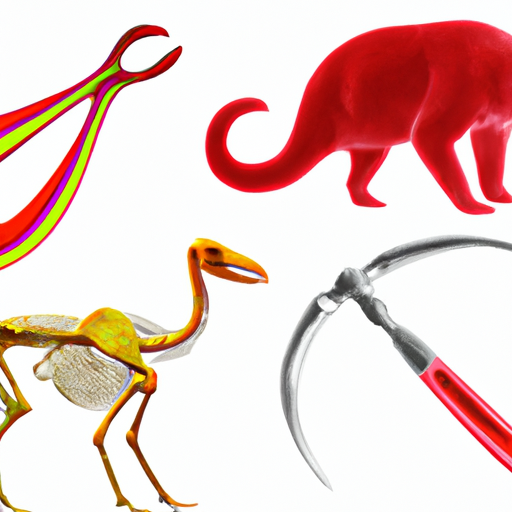 Introduction:
Introduction:
The use of animals in medical research has been a contentious ethical issue that has sparked passionate debates among scientists, ethicists, and animal rights activists for decades. Proponents argue that animal testing is crucial for advancing medical knowledge, developing life-saving treatments, and ensuring the safety of new drugs. On the other hand, opponents believe that such practices are cruel, unnecessary, and that alternative methods should be embraced. This article aims to provide a comprehensive overview of the arguments from both sides of the debate, exploring the ethical implications and considering potential alternatives to animal testing.
Historical Context:
The use of animals in medical research dates back to ancient times, with early experiments conducted by the Greeks and Romans. However, it was not until the 20th century that animal testing became more widespread and systematic. The discovery of antibiotics and vaccines, as well as developments in surgical techniques, owe a great deal to animal research. Nonetheless, the increasing concern for animal welfare and the emergence of alternative methods have led to a reevaluation of the necessity and ethics of animal testing.
Proponents’ Arguments:
1. Advancing Medical Knowledge: Supporters argue that using animals in medical research allows scientists to gain a deeper understanding of diseases, their causes, and potential treatment options. Animal models often provide valuable insights into complex biological processes that cannot be replicated in other systems, aiding in the development of innovative therapies.
2. Developing Life-Saving Treatments: Animal research has been instrumental in finding cures for many diseases, including polio, tuberculosis, and cancer, saving countless human lives. The ability to test new drugs and therapies on animals before human trials is seen as a necessary step in ensuring their safety and effectiveness.
3. Human Benefits: Proponents argue that the use of animals in medical research directly benefits human health. Without animal testing, it would be difficult to assess the potential risks and side effects of new drugs, leading to potential harm to patients. Animal testing also plays a crucial role in understanding drug interactions, dosages, and treatment protocols.
4. Legal and Regulatory Requirements: Many countries have strict regulations in place that require animal testing as part of the drug development process. These regulations are enforced to protect public health and ensure the safety and efficacy of new medications.
Opponents’ Arguments:
1. Animal Welfare: Critics maintain that subjecting animals to experimentation causes unnecessary suffering, infringing upon their rights and violating ethical principles. The use of animals for human benefit is seen as morally unjustifiable, as animals possess the capacity to experience pain and suffer just as humans do.
2. Reliability: Animal models may not always accurately represent human physiology, leading to flawed results and potentially harmful outcomes. Differences in metabolic processes, genetic variations, and responses to drugs can limit the effectiveness and applicability of animal testing results to humans.
3. Alternative Methods: Opponents argue that technological advancements have provided viable alternatives to animal testing. In vitro studies, computer modeling, microdosing, and tissue cultures offer promising alternatives that can reduce animal suffering and provide more relevant and reliable data.
4. Ethical Considerations: Animal rights activists contend that animals have inherent value and should not be used as mere commodities for human benefit. They advocate for the adoption of the “Three Rs” principle: Replacement (using non-animal alternatives), Reduction (minimizing the number of animals used), and Refinement (improving animal welfare during experiments).
Alternatives to Animal Testing:
Recognizing the ethical concerns associated with animal testing, scientists and researchers have made significant efforts to develop alternative methods. These include:
1. In vitro Studies: The use of human cells grown in a laboratory provides a more accurate representation of human physiology and can assess the toxic effects of substances without animal involvement.
2. Microdosing: The administration of sub-therapeutic doses to humans allows researchers to study drug metabolism and pharmacokinetics without major safety concerns.
3. Computer Modeling and Simulation: Sophisticated computer models can simulate human physiological processes and predict the effects of drugs, reducing the need for animal experimentation.
4. Organ-on-a-Chip Technology: These innovative devices mimic the structure and function of human organs, allowing researchers to study drug interactions and disease mechanisms in a more accurate and controlled manner.
Conclusion:
The question of whether animals should be used in medical research is a complex and multifaceted ethical dilemma. While animal testing has undoubtedly contributed to significant medical advancements, it cannot be denied that it raises ethical concerns regarding the welfare and rights of animals. The development and adoption of alternatives to animal testing offer promising avenues to address these concerns, providing more reliable, humane, and relevant methods in the pursuit of medical advancements. Ultimately, striking a balance between scientific progress and ethical considerations remains a challenge, requiring ongoing dialogue, collaboration, and critical evaluation of our practices and values.
